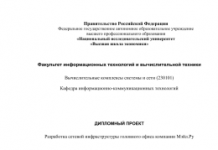Taylor Swift’s latest album, The Life of a Showgirl, faces a significant problem: a troubling lack of self-awareness. This critique, while not entirely new, feels particularly glaring given Swift’s past persona and musical evolution. For years, critics have pointed out a pattern of Swift portraying herself as a perpetual victim—targeted by manipulative lovers, disloyal friends, ruthless rivals, and predatory industry figures. Alongside this perceived victimization, Swift has been accused of publicly and sometimes cruelly retaliating against those who cross her, often through thinly veiled lyrics.
While these observations have been debated, Swift has previously demonstrated a balance between vengeful storytelling and genuine vulnerability. Songs like “Anti-Hero” and “The Manuscript” showcased growth and introspection, tempering the impulse for retribution. However, Showgirl departs significantly from this trajectory, revealing a troubling willingness to embody the very behavior she often condemns.
The album features songs that reject toxic internet culture (“Eldest Daughter”), but also tracks (“Actually Romantic” and “CANCELLED!”) that actively perpetuate its worst elements: mockery, humiliation, and tone-deaf commentary on sensitive political moments. This inconsistency leaves Swift’s critics with fresh evidence to support their long-held assessments, and casts a shadow on the pop star’s image—especially concerning her public persona of kindness.
The Contradiction: Condemning the Internet While Participating in Its Toxicity
The core of the problem lies in the album’s inconsistent messaging. Swift’s new film, The Official Release Party of a Showgirl, includes a scene where she explains the concept behind “Eldest Daughter”—a piano ballad about the internet’s tendency to reward callousness and cheap shots.
She articulates the digital landscape’s corrosive effect: “Everybody’s so punk on the internet / Everyone’s unbothered ’til they’re not / Every joke’s just trolling and memes / Sad as it seems, apathy is hot.” The song’s chorus expresses a promise to her fiancé, Travis Kelce, that she will never treat him with similar carelessness. While the lyric “bad bitch” may be regrettable, the song’s overall sentiment against the backdrop of the internet’s viciousness she describes is a welcome sign.
However, the goodwill fostered by “Eldest Daughter” is quickly undermined by “Actually Romantic”—a song dripping with bitterness and designed to shame its apparent target, believed to be singer Charli XCX. Charli XCX’s song “Sympathy is a Knife” from her 2024 album Brat —which also features a track titled “Everything is Romantic”—is rumored to be about Swift’s insecurities.
While “Sympathy is a Knife” grapples with a “spiral” of emotions surrounding the subject of the song, and shockingly contains lyrics about self-harm, “Actually Romantic” systematically and coldly humiliates its target. Swift’s words are pointed and cruel, employing a language reminiscent of online squabbles rather than thoughtful expression.
A Troubling Disconnect and Possible Motivations
Perhaps Swift attempts to justify this behavior with the line “Boring Barbie,” a purported private remark Charli XCX made about her. Yet, this explanation falls short. If Swift truly aspires to the world she envisions in “Eldest Daughter”—one marked by empathy and compassion—responding with spiteful attacks seems counterproductive. What if, instead of retribution, she’s explored vulnerability or offered a more nuanced perspective?
The album’s weaponization of “cancel culture” further compounds these issues. “CANCELLED!” attempts to portray public accountability as a form of personal persecution. The song’s suggested inspiration—Blake Lively’s lawsuit against actor Justin Baldoni or Brittany Mahomes’ public support for Donald Trump—misses a crucial point: accountability, when justified, isn’t necessarily a bad thing. It overlooks the potential for these actions to cause harm and undermines fundamental human rights.
Conclusion
Ultimately, The Life of a Showgirl presents a conflicted message. Taylor Swift is right to critique the toxicity of the internet, but on this album, that condemnation appears selective—useful only when it aligns with her own interests and vendettas. The album leaves a lingering question: can a figure who publicly champions kindness genuinely embody it when faced with perceived slights?




































